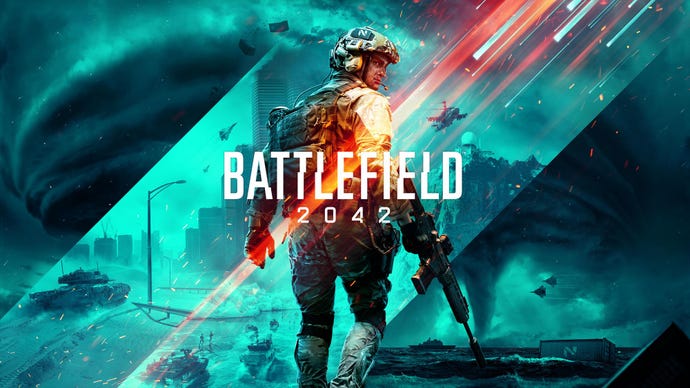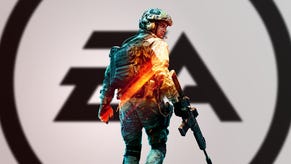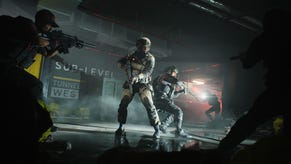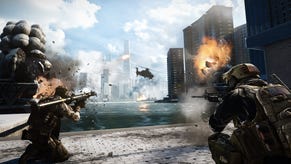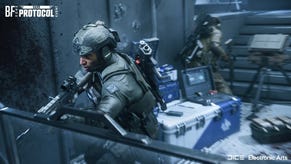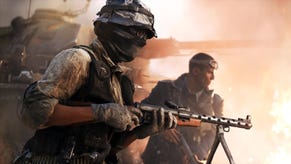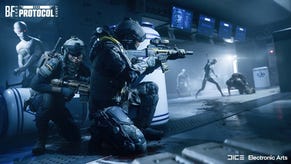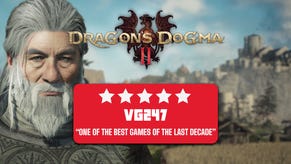Battlefield 2042 review – I don’t have it in me to stick with Battlefield through another terrible launch
Battlefield 2042 is not DICE's return to form.
I play a lot of shooters; many of them aren’t good. I am always open to being intrigued, whether through gameplay mechanics, narrative devices, engaging systems or even a stylish look and feel.
Battlefield is my go-to multiplayer shooter, the game I fall back on whenever I'm after a specific shooter fix. It’s my comfort food in that sense, something I just can’t get from any other series. I have been waiting for the next Battlefield since it became clear DICE doesn’t have a solid idea of what it wants to do with Battlefield 5.
So here we are, at the launch of Battlefield 2042, a game I’ve been playing since its early access release. It’s not a stretch to say it was my most anticipated game of the year, but that passion has turned into misery as I struggle to turn it on every night.
Putting my feelings on Battlefield 2042 into words has been a challenge, not due to any confusion about what I want from a Battlefield, but because it’s hard to judge the game on its own merits when it’s often not clear how they’re supposed to even work.
Battlefield 2042 is in a rough technical state. I can’t honestly point to a single system, mechanic or mode that is entirely devoid of bugs or some sort of weird mishap. What’s frustrating is that some of these problems, which the community has taken to calling ‘legacy bugs’, have been there in most of the recent games.
Revive bugs, entry/exist animation problems, clipping through the ground, rubber banding under certain conditions, UI elements overlapping and so much more are all issues many series veterans should be familiar with. Yet they continue to show up.
I never understood why DICE throws away years of work, experimentation and refinement when it starts working on every new Battlefield – rather than build on and perfect. But even if you’re willing to forgive the smaller bugs and technical hiccups, they’re usually intertwined enough with Battlefield 2042’s core design that the moment-to-moment suffers.
Excessive bullet spread/bloom makes engages anywhere beyond short range frustrating, as your bullets are happy to land anywhere but where you want them. The constant stutters, the result of poor server performance and weak CPU utilisation, make it hard to have a consistent framerate, and introduce hit detection woes that had me scratching my head.
When you witness all of that enough times, you won't always be able to tell which bug is responsible for your current predicament. Did I miss because I’m just bad, or because the bloom screwed me over? Actually, no, it might be shaky netcode that ate my well-aimed shots. The list goes on and on.
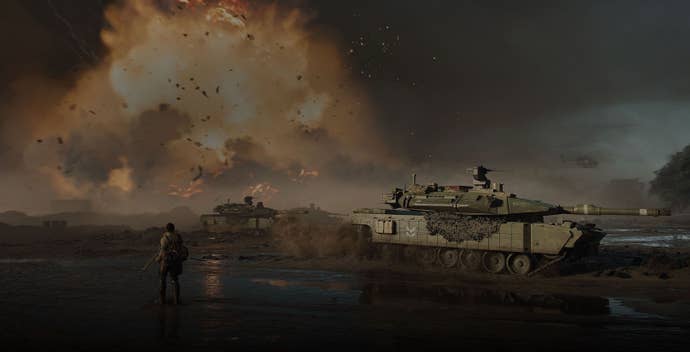
In the lead-up to the release of Battlefield 2042, it was common to hear complaints from beta and alpha players that this a game suffering from an identity crisis. I rejected that sentiment at the time, in part because it wasn’t fair to judge something as crucial as design identity based on limited, outdated pre-release builds. But also because I never quite saw it that way.
Now that we’re on the other side of it, I can’t help but agree with some of those Reddit hot takes. Even assuming the launch was flawless - as much as you can get in something largely produced from home post-pandemic, anyway – Battlefield 2042’s crisis isn’t so much about failing to contextualise what it borrows from other games within its own sandbox, it’s more to do with a misguided vision and sloppy execution.
From the very beginning, DICE set out to create the biggest Battlefield ever. But to the studio, that meant expanding the player counts, and designing larger play spaces to support that. This was its first stumble. Battlefield never had a problem with scale; it already offered one of largest player counts and biggest maps in the shooter space. It’s frankly a problem that didn’t need to be solved, and while I appreciate that innovation isn’t always born from challenge, the push for 128 players and what it brought simply needed to have a bigger impact for it to matter, or even make sense.
In all my time with the game, Conquest matches felt neither bigger nor smaller than standard 64-player. There are occasional moments where both teams seem to converge on one capture point, seemingly to try and test the limits of this newfound scale, but that’s about it.
Those moments can be fun, but that feeling is fleeting. For one, there is no class or squad structure for any of these skirmishes to feel organised enough to be meaningful. It only really helps generate momentary dopamine from multi-kills, and feed into that side of content creation on Twitch and YouTube.
Setting aside the missing class dynamics (which we’ll touch on in a moment), the larger number often tips the scales in favour of chaos, rather than action. This is especially true for Breakthrough, where DICE looks to have just thrown in the towel. The way the maps are designed simply doesn’t make it fun for two teams of 64 players to bang their heads against each other for 40 minutes. It’s often an inexorable battle of wills that decides who claims a sector.
Going back to Conquest, the emphasis on map size appears to have hit a technical snag during in development, because almost all maps have large dead spaces between capture points – themselves about half/quarter the size of a classic Battlefield map. It’s not a stretch to say that it sometimes feels like DICE stitched together traditional-size Battlefield maps with large expanses of snow, sand or grass.
It’s not uncommon to look through your scope and see infantry or vehicles running at quarter the animation framerate, or spot 3D models flip to their basic low-poly versions when things are far away enough – the N64 fog of this game.
Battlefield 2042 tries to get around this somewhat by offering free vehicle call-ins to lessen the effect of all that dead space, but the system is – like so many others– often buggy and confusing. Even still, it’s a band aid that doesn’t address the root of the problem.
Maps simply don’t have good flow, they feel like distinct battles that happen to take place in the same general area. There’s barely any strategic value to any of the game’s hotspots, beyond the obvious benefit holding the skyscraper offers camping snipers.
When DICE talked about bringing sectors into Conquest, and connecting two or more points, I hoped this dynamic would allow advances and retreats to inform one another, and give meaning to battles.
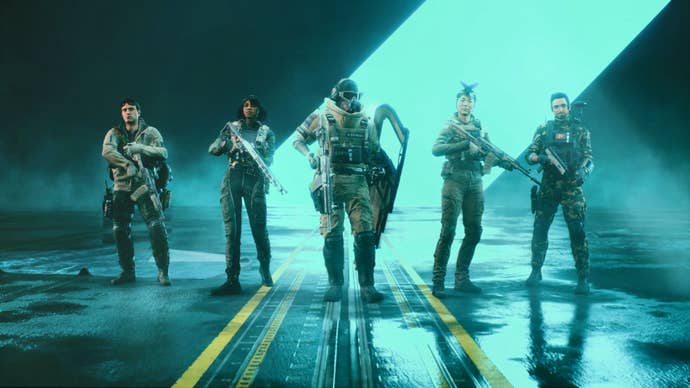
The one change that really turns Battlefield 2042 from another broken but ultimately solid Battlefield to a poor imitation of the series, is the removal of the class system. Team play has always been one of the core tenets of Battlefield. To mess with it is to bring ruin to the fabric that holds all of it together.
I genuinely can’t quite tell why we don’t have traditional classes anymore. The freedom of allowing anyone to equip their favourite weapon could have been achieved while keeping classes intact. I am always going to argue in favour of limitations in gameplay design, because they’re often necessary for a satisfying experience.
All the new free-flowing system does is offer players the freedom to not give a s**t.
The design of Specialists appears to feed into that. If you avoid the cynical outlook on why we have Rainbow Six Siege-like heroes in Battlefield in the first place, each Specialist only really serves one – often selfish – purpose.
How, exactly, is someone with a grappling hook or a wingsuit going to help contribute to squad play? Medics are universally useful, but the two that exist unnecessarily carve out their own niches within the classic definition of the class. You can certainly play an anti-vehicle role with Rao’s jammer, or a spotter with Casper – but their tools could have easily existed as gadgets, at least then you’d know who you’re coming up against.
Some Specialists feel like they’re carrying the weight of the absent class system in a sense, while others are meant to solve perceived Battlefield problems. Maps too big? Fly around! Too open? Plop down a shield!
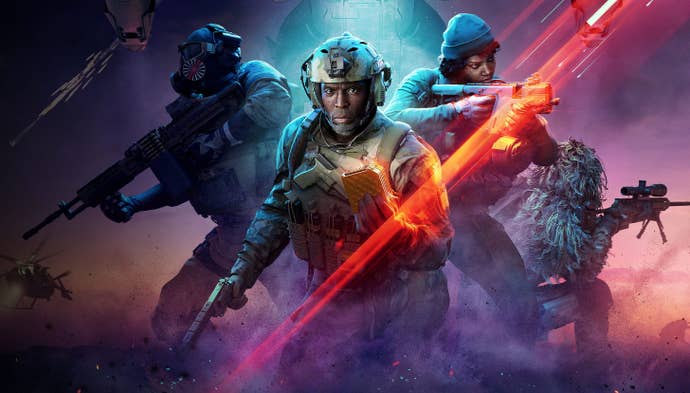
Specialists make more sense in Hazard Zone, the PvEvP extraction royale mode that offers a much lighter take on Escape from Tarkov, and Hunt: Showdown. Hazard Zone has players inserted into the same Conquest maps hunting for data drives, which need to be extracted for you to make any progress in the mode’s own separate meta. All throughout, you’ll be coming across AI guarding these caches, and enemy players trying to do the same.
Each squad can only pick one of the same Specialist, and through this limitation, the dynamic makes a lot more sense. The problem is that Hazard Zone is just so barebones that there isn’t really any depth to justify coming up with different combinations, or indeed tantalising rewards to get players to care.
This all leaves us with Portal, which has ended up being Battlefield 2042’s saving grace by default because of the rest of the game’s misfires. At launch, Portal includes two map remakes from Bad Company 2, Battlefield 3, and Battlefield 1942 – alongside a large assortment of weapons and gadgets from those games.
Developed by Ripple Effect (formerly DICE LA), Portal is teeming with love and respect for those classic games. This is seen in how they’re visually presented, and in how much the team attempted to recreate within the mechanics of 2042. It’s not perfect; classes for example have the same one-gadget limitation found in the main game.
Ironically, the sheer number of weapons and gadgets in each of the three games trumps that found in Battlefield 2042 proper. And, given how well-trodden and balanced those classic arenas are, Portal maps end up being more fun and varied to play. While I do indulge in nostalgia here and there, I can’t give Battlefield 2042 a pass because of Portal, even if the modding tools it includes could spawn some true classics once the community moves on from XP farming servers.
This review primarily judges the new game – All-Out Warfare, because that’s what most people are buying Battlefield 2042 for, and it’s frankly what the main event is. With that in mind, I can’t in good conscience recommend Battlefield 2042, not when we have genuinely fun shooters in Halo Infinite and Call of Duty: Vanguard out now – both in much better shape, and one is even free!
I’ve always said that nothing can replicate Battlefield. I still believe this to be the case, but it’s clear to me that not even Battlefield 2042 is interested in replicating Battlefield.
Nevertheless, the future is looking bright. DICE has already committed to two patches before year’s end, one of which is going to be significant, adding a number of UI updates and a hefty list of fixes. By the holidays, I expect the game to be in a better state.
But I can only judge what I’ve been playing. More importantly, the experience at launch – the one players paid upwards of $120 for – is ultimately the one worth critiquing today.
I am hopeful that 2042 will be a more interesting Battlefield game at some point next year, but having been through varying degrees of rough launches with this series - from BF 2142 through BF 5 - I can’t say I have the stamina to perform the dance of chastising DICE for technical problems and missing features, only to turn around and celebrate when the game is inevitably ‘good now, actually’ a year into it.
Version tested: PC. Code provided by publisher.
For actually useful Battlefield 2042 tips and tricks, check out our guide at the link.
